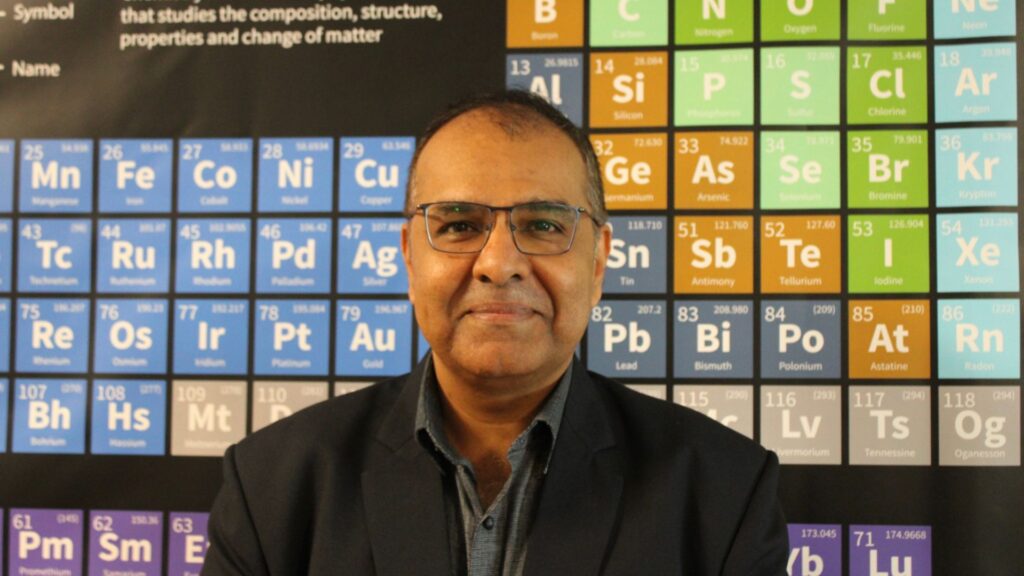Professor Develops AI Platform That Predicts Outcomes For Eye Diseases
As a kid, Dinesh Vidhani often visited his mom’s job at a drug development company in India to see her work as a scientist.
Her research inspired him to follow in her footsteps and become a chemist.
Today, Vidhani is an associate chemistry professor at Eduardo J. Padrón Campus. His latest innovation is an artificial intelligence platform that provides a patient’s ophthalmological diagnosis and prognosis—AI-Ophthal.
It uses patient history and systemic conditions to diagnose and manage multiple eye diseases at once, including cataracts, glaucoma and diabetic retinopathy. The AI-Ophthal platform also predicts surgical and treatment outcomes, with more than 95% accuracy.
Vidhani announced on LinkedIn that he and his brother, Dr. Anupkumar Vidhani, and their team in India are awaiting a United States patent for the project.
“Vidhani is one of those professors in the department who sets a very high standard, both as a professor and as a researcher,” said Jyrko Correa-Morris, chairperson of the mathematics and natural sciences department at Padrón Campus.
According to the U.S. Patent and Trademark Office, “a U.S. patent gives you, the inventor, the right to “exclude others from making, using, offering for sale, or selling” an invention or “importing” it into the U.S.” Those rights are granted to the inventor for 15 to 20 years, depending on the patent.
The idea blossomed in 2020 when Vidhani’s brother pitched the project. Vidhani agreed to virtually assist using his passion for research and knowledge in AI.
For two years, Vidhani underwent training to learn about ocular anatomy and physiology, common diseases and examination standards and procedures. Then, he began developing the artificial intelligence code with two modes: user or autonomous mode.
User mode is managed by a medical professional while autonomous mode gives the platform free range tasks such as diagnostic assessments and advising prognosis with a medical professional’s verification required.
“Everything that he is doing, both by himself and with his students, is an example of academic excellence,” Correa-Morris said. “I would like to have all professors doing what he is doing one way or another.”
Vidhani and his team are seeking to collaborate with healthcare providers, research institutions and nonprofit organizations to continue developing AI-Ophthal and expand access to it worldwide, especially in underserved areas.
“Everyone should have equal access. Nobody should be restricted, and nobody should be making a profit out of somebody’s health,” Vidhani said.
Staff writer Sabrina Toro contributed to this story.
Click here to subscribe to our bi-weekly newsletter, The Hammerhead. For news tips, contact us at mdc.thereporter@gmail.com.

